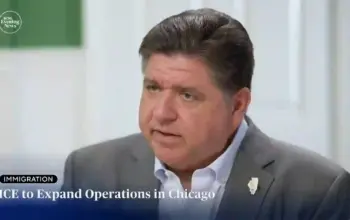Now that the border crisis appears to have cooled, Miami’s Archbishop Thomas Wenski believes it’s time for America to focus on a different kind of immigration challenge—how to offer a future to long-term, law-abiding migrants already living and working in the country.
In a recent interview and public statement, Archbishop Wenski called on both Congress and President Trump’s administration to expand legal opportunities for undocumented immigrants who haven’t committed crimes and have built lives in the U.S.
A Labor Crisis That Can’t Afford Deportation
Wenski pointed out that deporting hardworking migrants only adds to an already growing issue—labor shortages across key industries.
“The United States needs workers,” he emphasized, “especially in sectors like health care, agriculture, and service jobs.
Kicking out people who are already doing those jobs makes no sense. It’s a loss for the country, not a win.”
Rather than spending billions of dollars on deportation, the archbishop suggested that it would be both more affordable and more ethical to create pathways to permanent legal status for immigrants who have stayed out of trouble and actively contributed to society.
A Decade or More in the U.S.—Then What?
In an interview with La Voz Católica, Wenski expressed frustration with what he described as a “cruel and arbitrary” approach to immigration enforcement—one that punishes people who have lived in the U.S. peacefully for years.
“If someone’s been allowed to remain here for 10, even 20 years,” he said, “chances are they have U.S.-born children, own homes, or have started small businesses.
To suddenly say ‘go back home,’ when home is here now, is deeply unfair.”
His comments highlight a broader tension in the immigration debate—between enforcement and humanity—and raise questions about what happens when people put down roots, only to be told to uproot again.
Faith Leaders Blocked from Ministering at Detention Center
Wenski also echoed concerns voiced by Bishop Frank Dewane over a controversial new detention center in Florida’s Diocese of Venice—nicknamed “Alligator Alcatraz.”
The Miami archbishop said that from day one, the Church had asked for permission to offer religious services to detainees at the facility.
But so far, that request hasn’t been honored.
Deacon Edgardo Farías, who leads the archdiocesan prison ministry, went to the site to ask about offering Mass.
According to Wenski, officials told him to come back later due to bad mosquito conditions.
That, Wenski implied, was a brush-off.
A Call for Compassion and Common Sense
Archbishop Wenski’s message is clear: the U.S. immigration system needs to stop penalizing the people who have already become part of the fabric of American life.
Rather than focusing all efforts on enforcement, he’s asking lawmakers and the president to lead with both compassion and practicality.
“These people have lived here, worked here, and raised families here,” Wenski said.
“If we’ve let them build lives in our communities, we owe them more than just a one-way ticket out.”



